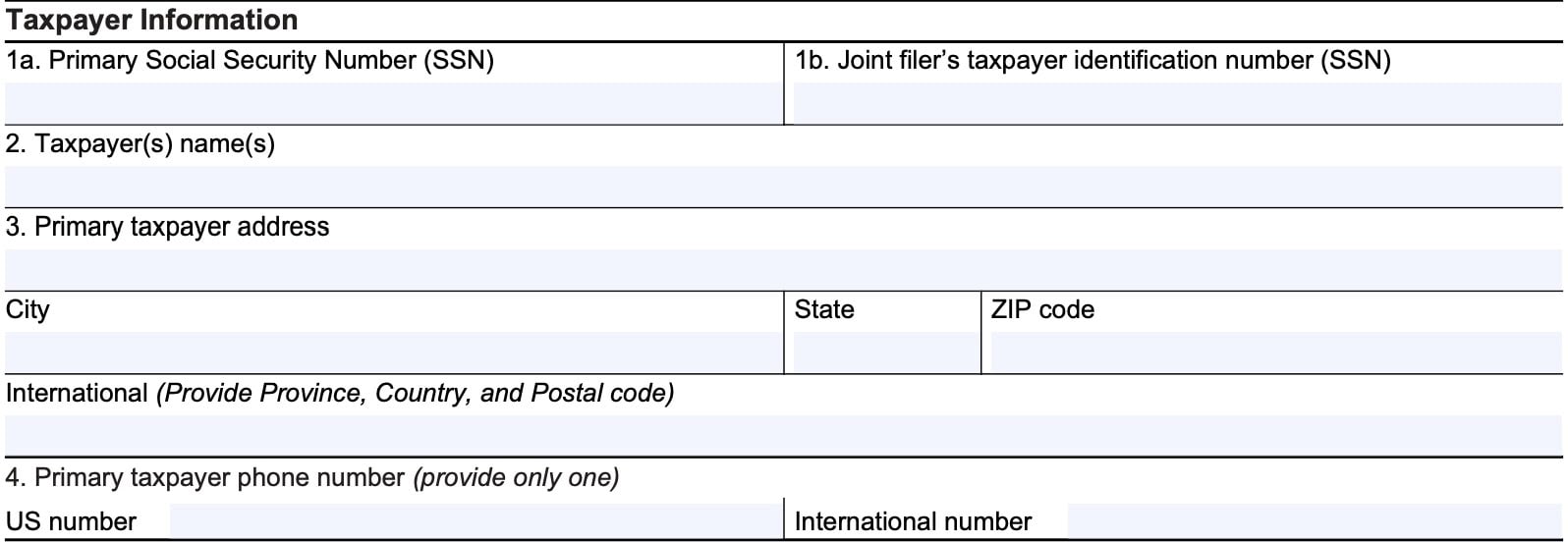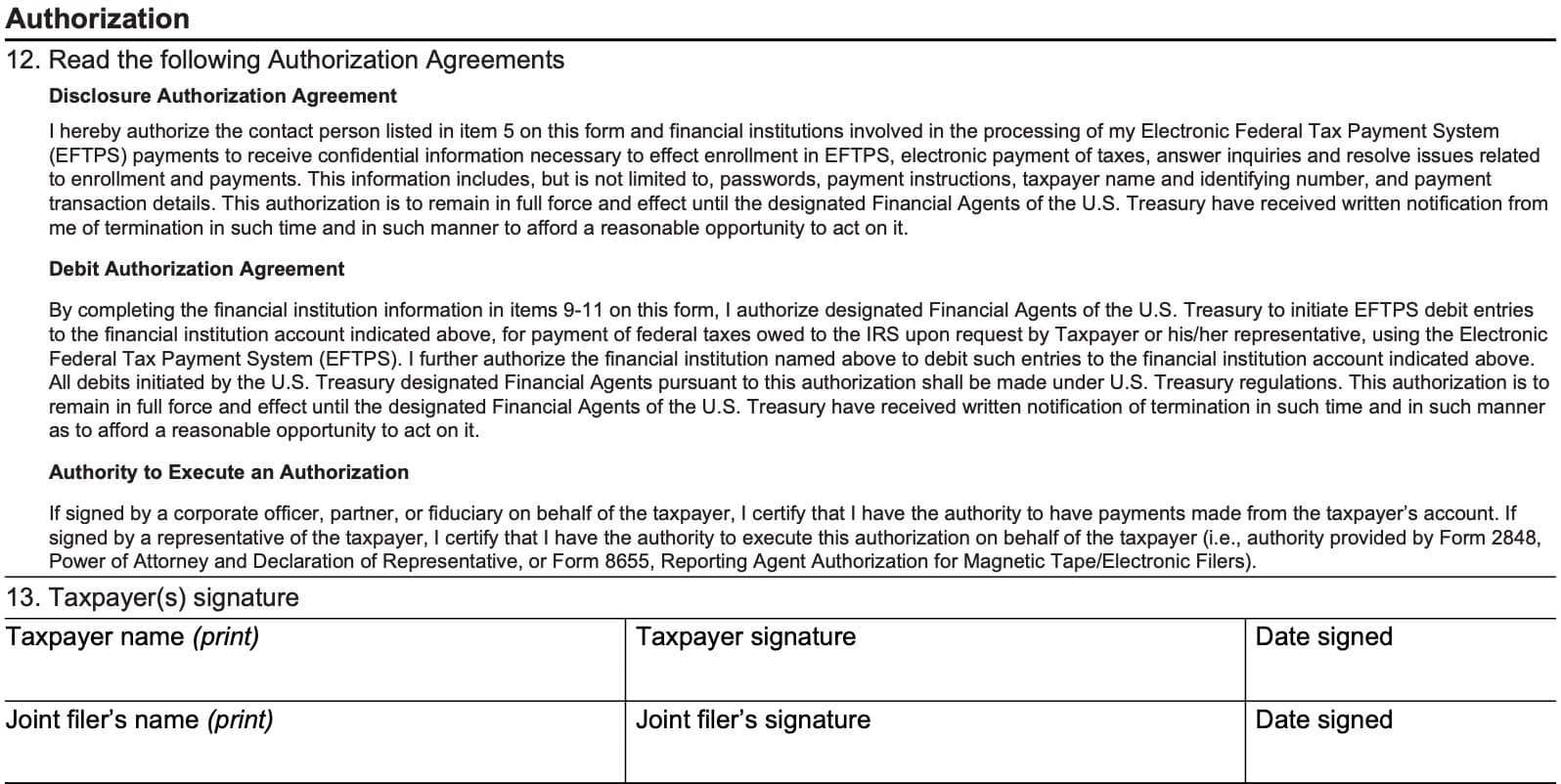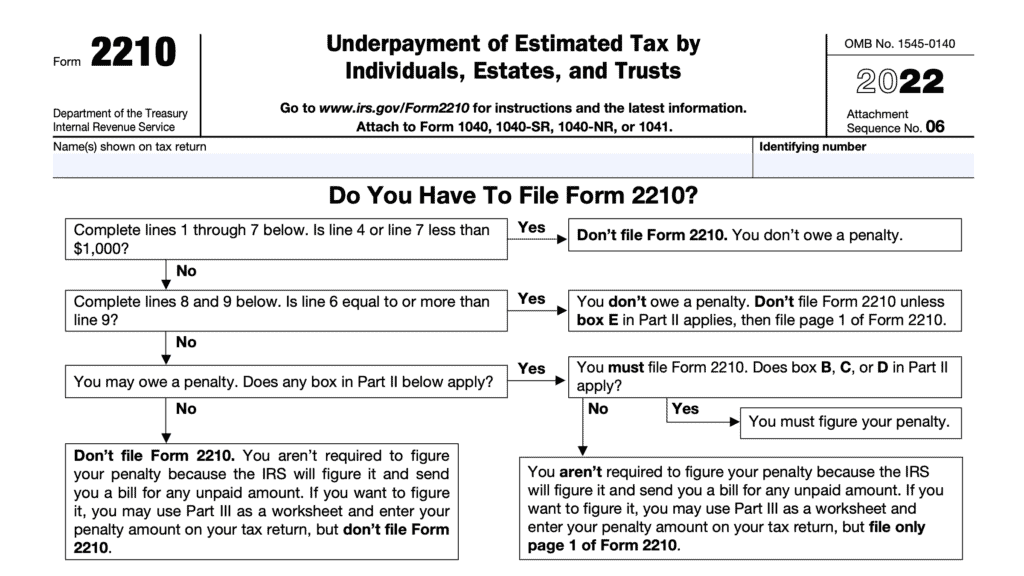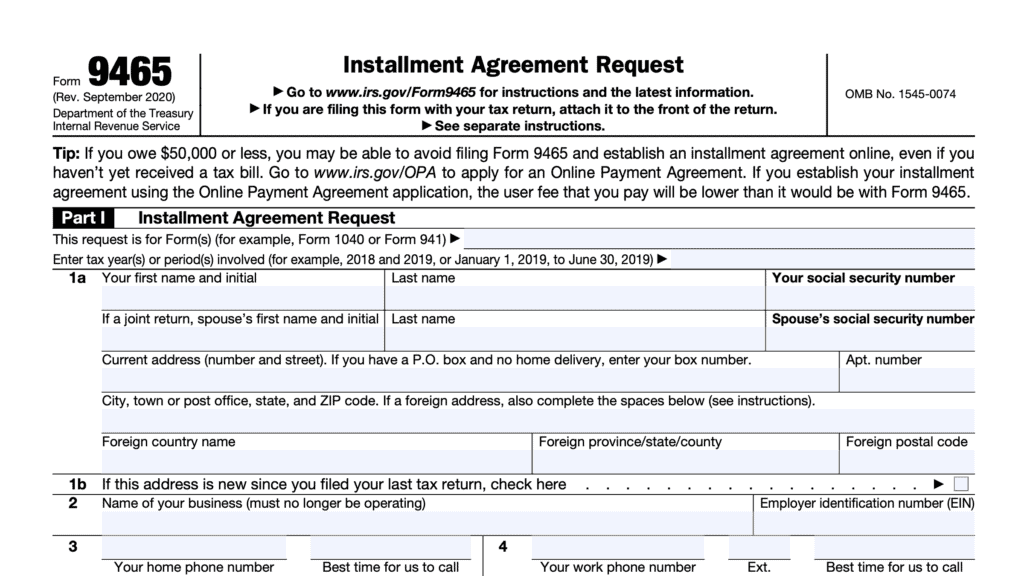IRS Form 9783 Instructions
If you want to pay your federal taxes electronically, you can use IRS Form 9783 to enroll in the Treasury Department’s Electronic Federal Tax Payment System.
In this article, we’ll give you in-depth guidance on how to:
- Complete and file IRS Form 9783
- Alternatives to enrolling in EFTPS with filing IRS Form 9783
- Other filing considerations and frequently asked questions
Let’s begin with a step-by-step overview of this tax form.
Table of contents
How do I complete IRS Form 9783?
This two-page tax form is relatively straightforward to complete. For your convenience, we’ve broken this down into several sections:
- Taxpayer information
- Contact information
- Social Security number & financial institution information
- Signature
Let’s begin at the top.
Taxpayer information
In this section, we’ll enter information about the taxpayer or taxpayers.
Item 1a: Primary Social Security number (SSN)
In Item 1a, enter the Social Security number (SSN) of the primary taxpayer. The primary taxpayer is the taxpayer listed first on your federal income tax return.
Sole proprietors
Sole proprietors are generally considered individual taxpayers, not necessarily business taxpayers.
If you are a sole proprietor, without employees, then do the following:
- Use Form 9783, EFTPS Individual Enrollment to enroll in EFTPS as an individual taxpayer
- Use the primary Social Security Number associated with filing your Taxpayer Identification Number (TIN).
Item 1b: Joint filer’s SSN
For married couples filing a joint tax return, enter the joint filer’s SSN here.
Item 2: Taxpayer(s) Name(s)
Print your name exactly as it appears on the tax return. The only valid characters are A-Z, 0-9, -, &, and
blank.
For joint filers, enter primary taxpayer name first, followed by the spouse’s name. Examples include the following:
- John and Mary Smith
- John Smith and Mary Jones

Item 3: Primary taxpayer address
Enter the taxpayer’s primary address on your tax return. Include the following information:
- Street number and name
- City, state, zip code
International taxpayers
International taxpayers should provide their province name, country name, and postal code.
Item 4: Primary taxpayer phone number
Enter the primary taxpayer’s telephone number here. For international phone numbers, use the international number field provided.
Contact information
Item 5: Primary contact name
Enter the name of the primary contact in Item 5. This may be the taxpayer, another third party, or it could be one of the following tax professionals:
- Certified public accountant
- Enrolled agent
- Attorney
Item 6: Primary contact mailing address
If the contact listed in Item 5 has a different address from the taxpayer, enter the contact’s mailing address here.
All EFTPS mailings will be sent to the primary contact at this address, if it is different from the address listed in Item 3.

Item 7: Primary contact phone number
Enter the telephone number for the primary contact, if different from the phone number in Item 4, above.
Social Security number & financial institution information
Item 8: Primary Social Security number
Enter the primary taxpayer’s SSN here. This should match the SSN entered in Item 1a.

Item 9: Routing transit number
Enter the 9-digit routing transit number, or RTN, for your banking account. This is the nine-digit number associated with your financial institution.
You may contact your financial institution to verify this number.
Item 10: Account number
Enter the account number for the account that you plan to use to pay your federal taxes.
Item 11: Type of account
Check the appropriate box to indicate whether this is a checking or savings account.
Signature
In this section, we’ll read the Electronic Federal Tax Payment System authorization agreements, then sign and date the form. Before we get to the signature fields, let’s take a closer look at what the authorization agreements state.
Item 12: Authorization agreements
It’s easy to skip the fine print, but you should take the time to understand what you’re signing. In this section, we’ll break down each of the following agreements so you understand what your signature authorizes:
- Disclosure Authorization Agreement
- Debit Authorization Agreement
- Authority to Execute an Authorization
Disclosure Authorization Agreement
This is a third-party authorization to allow your contact person (designated in Item 5) and your financial institution to:
- Receive confidential information that is required for EFTPS enrollment
- Process electronic tax payments
- Answer questions and resolve issues related to enrollment and online payments
This confidential information may include:
- Passwords
- Payment instructions
- Taxpayer name and identifying number
- Payment transaction details
This authorization remains in effect until the taxpayer provides written notification to the U.S. Department of the Treasury that this authorization is terminated.
Debit Authorization Agreement
The following agreement authorizes the federal government to debit your bank account, listed in Items 9-11, for federal tax deposits. Any electronic debits will comply with federal law and Treasury Department regulations (final regulations).
This authorization also remains in effect until the taxpayer provides written notification to the U.S. Department of the Treasury that this authorization is terminated.
Authority to Execute an Authorization
The final authorization certifies that the person signing this form on behalf of the taxpayer has the authority to do so.
The signer is stating that if he or she is not the taxpayer, then the taxpayer has delegated authority in writing, which can be done on one of the following:
- IRS Form 2848, Power of Attorney and Declaration of Representative, or
- IRS Form 8655, Reporting Agent Authorization
Assuming that you’ll fine with these authorization agreements, let’s proceed to the signature portion.

Item 13: Taxpayer signature
The taxpayer, and the joint filer (if applicable), must sign Item 13 to authorize EFTPS participation. Without a signature, EFTPS Customer Service will return this form.
This section also provides authorization to share the information provided with your financial institution(s) required for EFTPS processing. If signed on behalf of the taxpayer, the signer certifies authority to execute this authorization.
Filing considerations
Now that we’ve completed the form, we should go over some filing considerations.
Specific guidance on completing IRS Form 9783
Throughout the form, there are bits of specific instruction that are easy to miss. For example, there are instructions on how you should print on the form:
- Use black or blue ink only
- Print legibly
- Use only CAPITAL letters
How to file IRS Form 9783
Send your completed form to the following address:
EFTPS Enrollment Processing Center
P.O. Box 173788, Denver, CO 80217-3788
How long it takes to process IRS Form 9783
According to the form instructions, you should receive written instructions from the Treasury Department on how to use EFTPS within seven business days after the federal government receives the form.
Alternatives
Not interested in completing IRS Form 9783? You can enroll in EFTPS online through the EFTPS website.
Video walkthrough
Watch this instructional video to learn more about using IRS Form 9783 to enroll in EFTPS.
Frequently asked questions
IRS Form 9783 is the form that taxpayers may complete to provide payment information to the Treasury Department for federal tax payments. Completing this form also provides third party authorization for a taxpayer’s representative regarding income tax payments.
No. Taxpayers also may enroll in EFTPS, Electronic Federal Tax Payment System through the federal government’s official website: EFTPS.gov.
Where can I find IRS Form 9783?
You may find the latest versions of IRS forms on the Internal Revenue Service website. For your convenience, we’ve attached the most recent version of IRS Form 9783 to this article.


